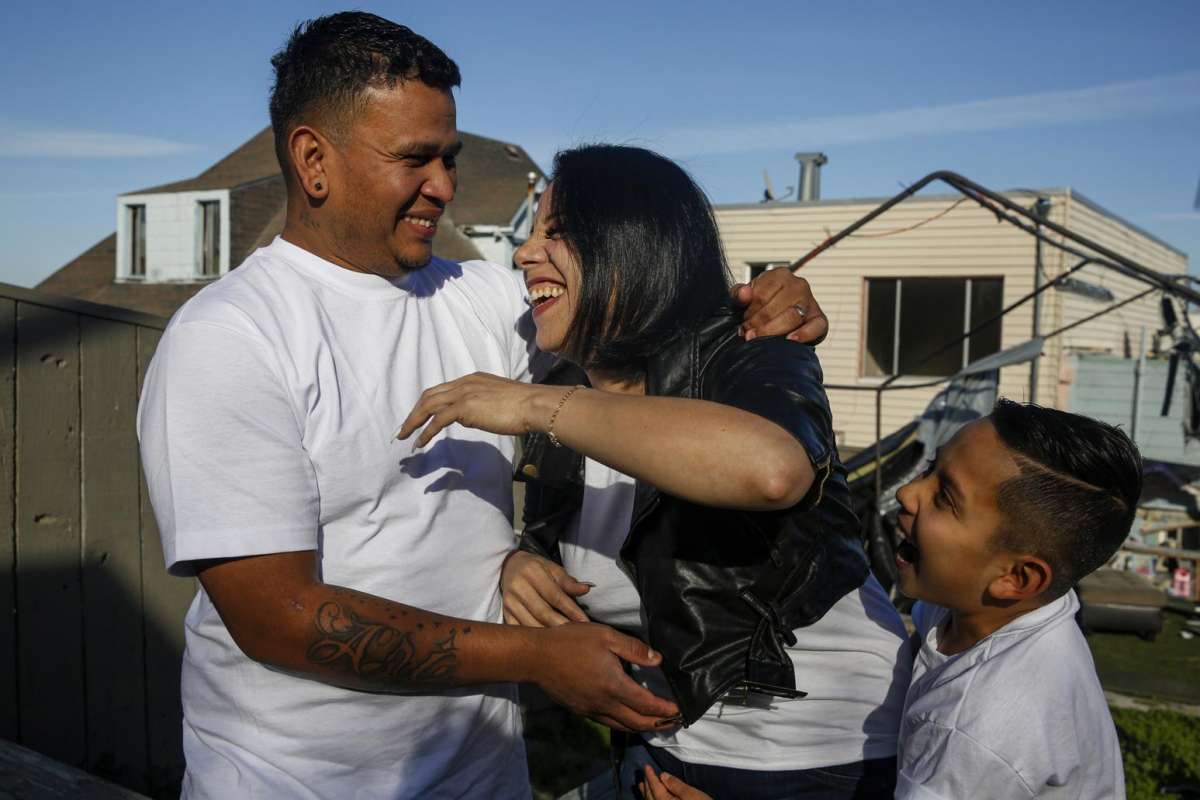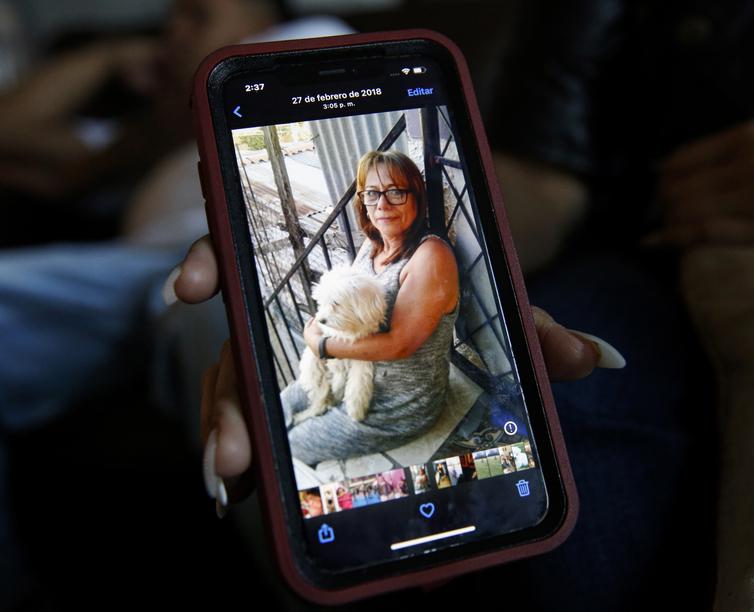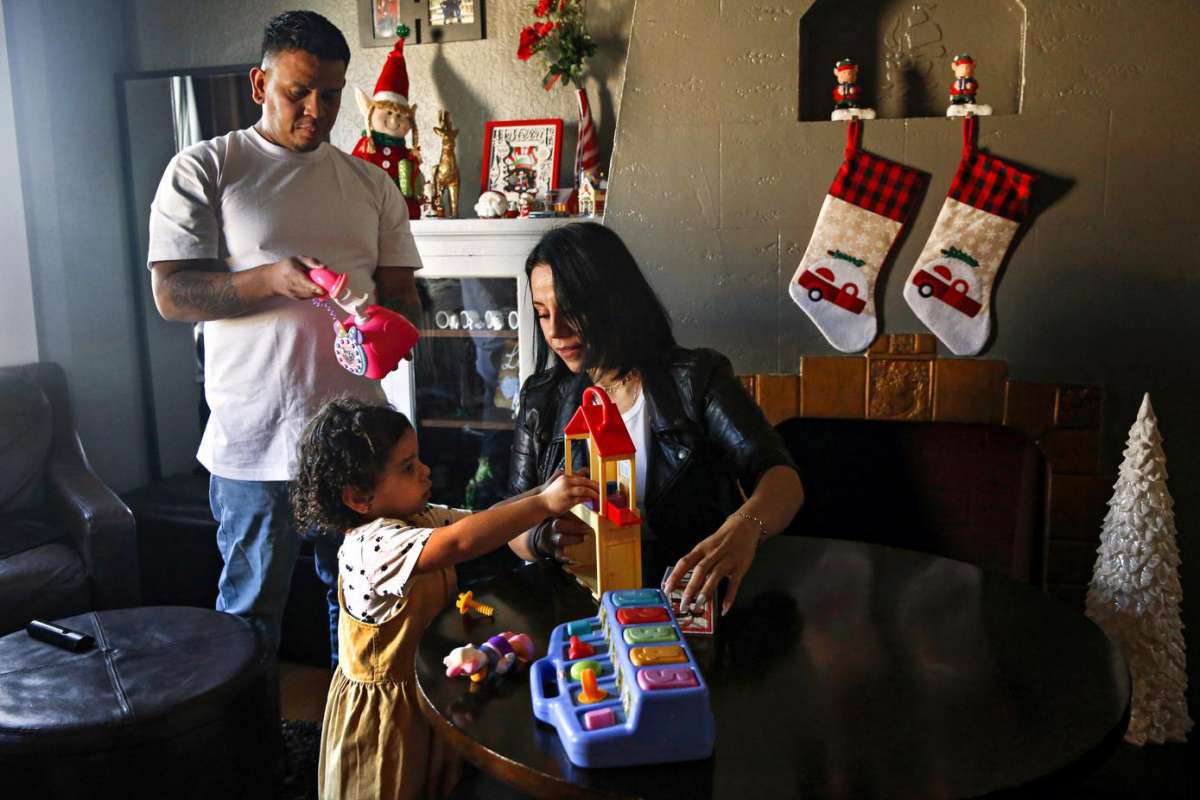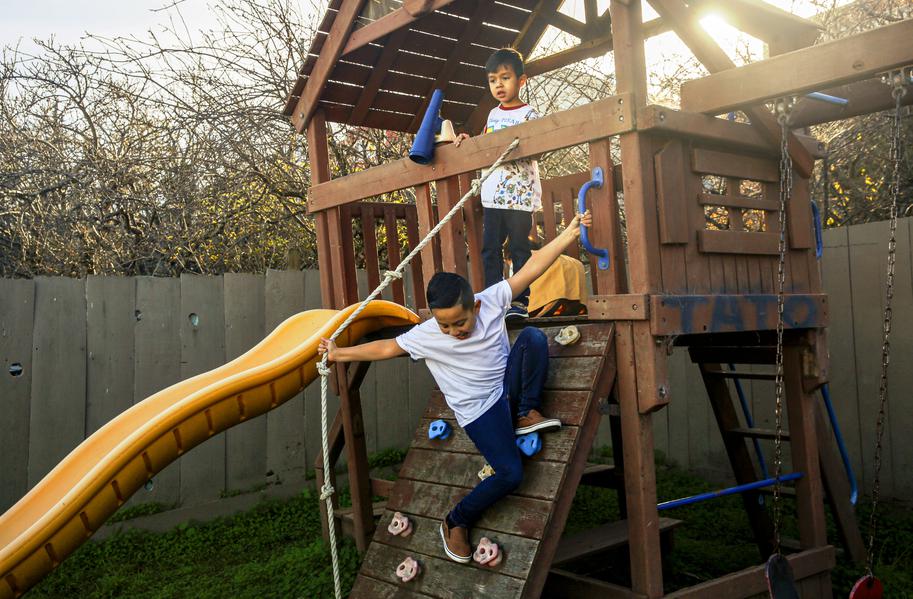
This time last year, Maryuri Aceituno wasn’t sure if her family of four was going to be able to keep their San Francisco home of eight years.
The pandemic — and the havoc it wreaked on her work schedule cleaning buildings around the Bay Area — came at a crucial moment for the 41-year-old mother. After immigrating from Honduras 15 years earlier, she was finally on the verge of securing U.S. residency.
But until the papers came through, her handyman husband was still ineligible for unemployment. It got harder to keep up with rent for their Visitacion Valley two-bedroom. Aceituno called to ask about food stamps for her 3- and 8-year-old children, but she retreated due to concerns about how it might impact the immigration process.
“Ultimately, I got scared,” Aceituno said in Spanish. “I didn’t want to ruin this.”
In a state where nearly 1 in 10 workers is an undocumented immigrant and thousands more rely on temporary work visas, California lawyers and social workers say Aceituno’s predicament has become a common one in the many months since the coronavirus took hold.
California is among states that have offered limited one-time payments of $500 to $1,000 to undocumented workers during the pandemic. Beyond that, immigrant families like Aceituno’s are forced to navigate a maze of other government programs to determine what they might qualify for — such as health care, food assistance or COVID-19 rent relief — or turn to nonprofits and private funds for help with mounting bills.
“We were getting calls every day from undocumented workers who are like, ‘I lost my job; what can I do?’” said Kim Ouillette, a San Francisco wage protection attorney with advocacy group Legal Aid at Work. “They have no legal recourse. Lots of folks lost their housing or went into debt.”



Aceituno found herself in similarly dire straits early this year, when she suffered a work injury that further derailed her family’s income and ability to pay rent. They stayed housed with the help of a local social worker and four months of rent assistance from The Chronicle’s Season of Sharing Fund.
It was a welcome surprise after the long journey from Honduras to fragile family stability in the Bay Area.
“My country is a tough country,” Aceituno said. “To come here, to find people that help one another like this, for me this is something new.”
When she left the capital city of Tegucigalpa in 2005 to join her brother in San Francisco, Aceituno’s home country was seeing the last century’s political violence and domination by foreign agricultural interests give way to a new era: one marked by economic instability, devastating tropical storms and among the world’s highest murder rates.
She didn’t expect starting over to be easy, but she had a young daughter and her mother in Honduras to support. Aceituno was ecstatic to discover that when the cleaning business was steady, her family had time and money to indulge in California luxuries like camping. Her now-8-year-old son even learned to ride a mini-motorcycle.
The thought of turning to the government or other outsiders for help in her adopted home country didn’t seem like an option: “Never,” Aceituno said. “Never, never, never.”
A strong sense of self-reliance is something that Victor Ramos has seen often among immigrant clients in two decades as a social worker at San Francisco’s St. Anthony Foundation.
But that was before the pandemic turned everything upside down.
“The need has increased in terms of food, in terms of the rent,” said Ramos, who connected Aceituno’s family with Season of Sharing. “Immigrants may not have needed benefits in the past if they were working, but the pandemic has been really, really hard on them.”
One count, by researchers at UC Merced, found that about 688,000 California workers who do not have U.S. citizenship lost jobs during the early months of the pandemic. Nearly 1 in 3 noncitizen working women lost their jobs, the researchers estimated.
Aceituno’s long list of regular cleaning sites and her husband’s routine of looking for work outside home improvement stores both came to a sudden halt when public health lockdowns began last spring. Things got scarier last summer, when her husband suddenly developed a strong cough and started feeling pain in his chest, but the family made it through his bout with COVID-19.
As the months wore on, Aceituno returned to jobs like cleaning a senior housing complex, where double masks were required. But she suffered another setback in January, when she injured her back in an accident at work.
Aceituno received limited disability benefits. But it wasn’t enough to keep up with the family’s $2,600 monthly rent.
As anxiety mounted, a friend told Aceituno about the St. Anthony Foundation, which identified her as a candidate for rent assistance from Season of Sharing. The nonprofit works to prevent homelessness and hunger in the Bay Area. All donations to the fund go directly to help people in need, with administrative costs covered by The Chronicle and the Evelyn and Walter Haas Jr. Fund.
Within about three weeks, Aceituno said, her family got the news that the fund would cover four months of rent.
“I never expected it,” Aceituno said. “I didn’t believe that these things existed.”
Aceituno calls the money “a blessing” that allowed her family to stay in their home while she attended physical therapy. The number of buildings where she’s working has picked back up as employers shift cleaning duties from old desk-to-desk trash pickups to sanitizing common areas like lobbies. Her husband is finding more odd jobs, too, though monthly income is still hard to predict.
In the meantime, advocates like Ouillette of Legal Aid at Work are pushing California lawmakers to do more to compensate workers still recovering from the pandemic and keep up with other socially progressive states. In New York, lawmakers moved in April to create a $2.1 billion Excluded Workers Fund that will pay up to $15,600 to undocumented workers who lost income.
For her part, Aceituno says it would be “a sin” to complain about any lingering financial stress. Her back still hurts some days, but her family is otherwise healthy, and she hopes the worst is behind them.
“It’s difficult,” she said. “But you have to keep going.”
Lauren Hepler is a San Francisco Chronicle staff writer. Email: lauren.hepler@sfchronicle.com Twitter: @LAHepler
Read the full article at: https://www.sfchronicle.com/bayarea/article/Facing-immigration-uncertainty-and-COVID-19-S-F-16650527.php
